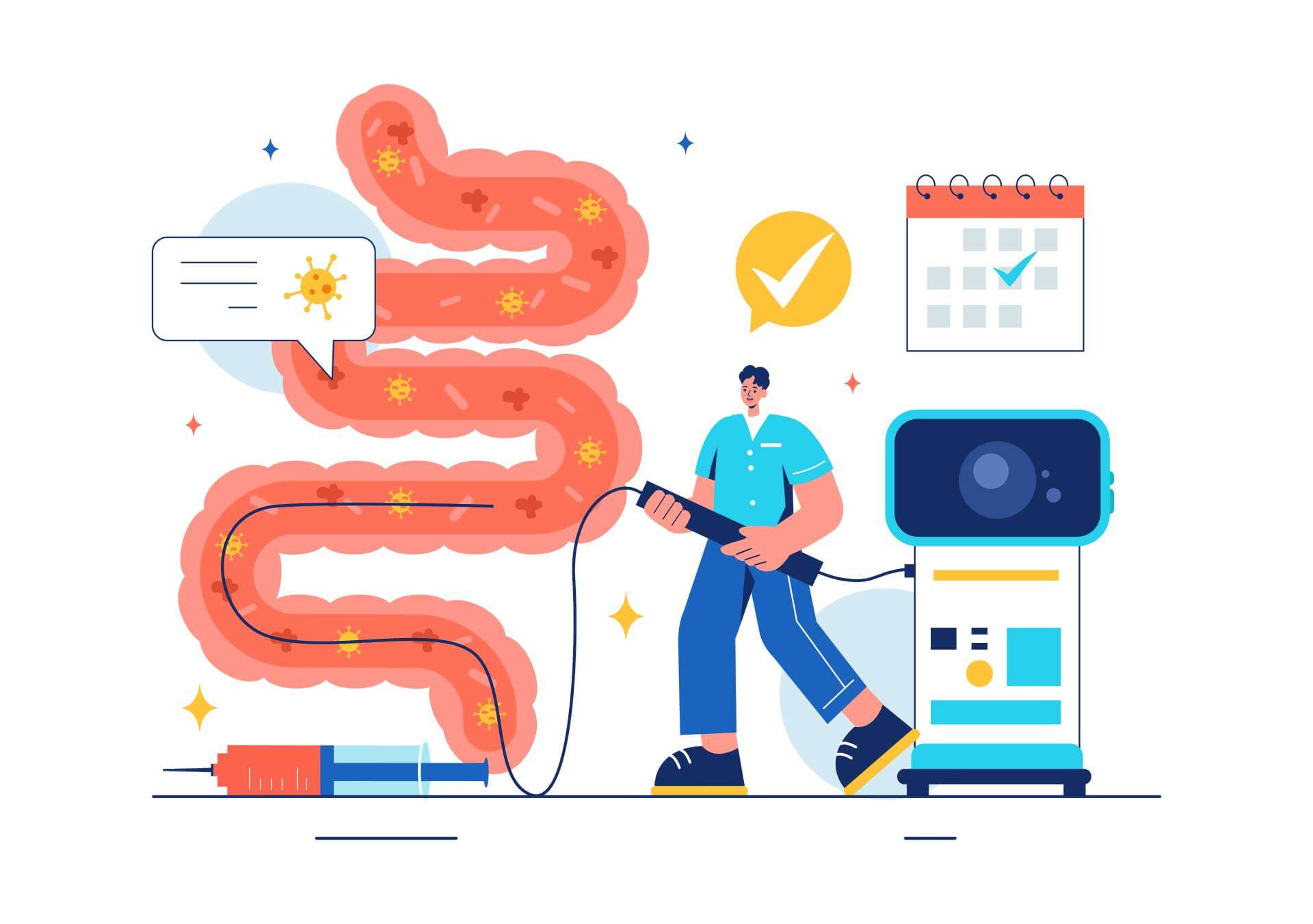A colonoscopy is a medical test used to screen for colon cancer and other bowel issues. During a colonoscopy, a camera is used to view the inner lining of your large intestine and rectum. Colonoscopies should be performed routinely in a number of populations, as we’ll explore below.
The Basics
To perform a colonoscopy, your doctor will thread a camera on a thin tube through the colon. Prior to a colonoscopy, you’ll undergo a colon cleanse for 1-2 days, in which you’ll take a solution that helps you clear out the intestines. During the colonoscopy, you will be placed under mild sedation and anesthesia, so you won’t feel or remember the procedure.
Your doctor will look for:
- Tumors
- Polyps
- Inflammation
- Ulcers
- Bleeding
From there, the information will be used to support a diagnosis, plan for treatment, or order more tests.
Who Needs It
Colon cancer and polyps are more common in people over 50, so routine colonoscopies are recommended every several years for all people over 50. Your doctor may recommend that you have a colonoscopy more often if you have a history of cancer or polyps, or a family history of colon cancer. In addition, your doctor may order a colonoscopy based on symptoms like bleeding, pain, or weight loss.
Why It’s Important
Having your recommended colonoscopy is absolutely essential to your long-term health. Colon cancer is very treatable, especially when it’s caught early on or before polyps actually develop into cancer. Colon cancer is a leading cause of cancer and death, and colonoscopies can help prevent and treat many cases.
Many people are reluctant to get their colonoscopy because they fear it will be uncomfortable, painful, or embarrassing. It’s true that the process of cleaning out the colon prior to the procedure can be uncomfortable; you may experience loose stools and diarrhea. Despite this, neither the procedure nor the preparation should be actively painful.
During the procedure, your doctor will work to ensure that you have privacy and are as comfortable as possible. Doctors view the colon as just another body part, and see the colon and rectum every day; however, your doctor will understand your discomfort and take steps to combat it.
A colonoscopy is a simple screening procedure that can save lives. It is relatively quick to undergo and can help you identify bowel issues before you have serious symptoms and complications. If you are over 50, have other risk factors, or have been recommended to do so by your physician, you should schedule a colonoscopy as soon as possible.
To schedule your colon cancer screening today, please contact one of the doctors at GI Alliance.


